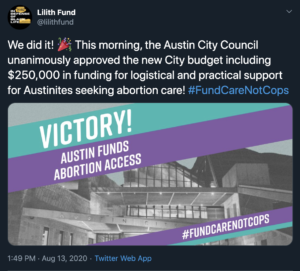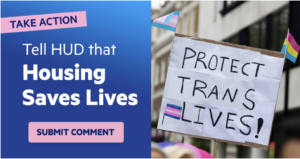
Health Care Access
Congress has failed to agree on a COVID-19 relief package
The U.S. Congress has not been able to reach an agreement on the next covid19 relief package, even after significant portions of the last relief package, the CARES Act, expired at the end of July.
In May, the House of Representatives passed a $3 trillion package, HR 6800, known as the HEROES Act. Late last month, Senate Republicans unveiled their $1 trillion package known as the HEALS Act. The HEALS Act is significantly narrower than the HEROES Act. Here are some of the ways they are different:
| HEROES Act (passed House in May) | HEALS Act (proposed in Senate in July) |
Unemployment Insurance (UI) | Keeps enhanced UI at $600 through January 2021. Extends eligibility for gig workers, part-time workers, and others traditionally excluded from UI through March 2021. |
Cuts enhanced UI from $600 to $200 per month through September. In October, workers would receive 70% of their income, with the federal government paying no more than $500. |
Stimulus Checks | Provides direct payments of $1,200 for most adults earning up to $75,000 and $1,200 for dependents (up to three). Available for those who file taxes. | Provides direct payments of $1,200 for most adults earning up to $75,000 and $500for dependents (up to three). Available for those with a social security number. |
Housing | Extends the federal eviction moratorium for one year. Allocates $100 billion for rental assistance and $20 billion in public housing assistance. | Does not extend the federal eviction moratorium (expired end of July). Allocates $3.3 billion for housing assistance. |
Health Care Funding | Appropriates $75 billion for testing and contact tracing and $100 billion for hospitals/providers. Includes a special enrollment period for health care coverage on the ACA marketplace. Requires insurers to cover all covid-related testing and treatment without cost sharing. | Appropriates $16 billion for testing and contact tracing and $25 billion for hospitals/providers. |
Nutrition Assistance | Appropriates $10 billion for the Supplemental Nutrition Assistance Program (SNAP). | No additional funding for SNAP. |
Liability Shield | Does not include a liability shield. | Includes a liability shield to prevent businesses, universities, schools, and hospitals from being sued over COVID-related issues, even if they were negligent in their covid-related safety practices. |
Missouri voters approve Medicaid expansion
Missouri voters approved a state constitutional amendment to expand Medicaid eligibility to people making up to 138% of the federal poverty line by July 1, 2021. This will be the first time many adults with no or low incomes will be eligible for Medicaid coverage. Researchers estimate that about 230,000 people would gain health care coverage and the state would save an estimated $39 million per year.
Missouri will be the 38th state (and Washington D.C.) to expand its Medicaid program, and the sixth to do so through a ballot measure. The 12 states that haven’t expanded their Medicaid programs are mostly Republican-led and overwhelmingly in the U.S. South. 
Secure Data and Privacy for Contact Tracing Act introduced in House
Representative Jackie Speier (D-CA) introduced the Secure Data and Privacy for Contact Tracing Act, H.R. 7472, in the House. Many states are looking to use technology to supplement traditional contact tracing efforts to identify people exposed to COVID-19. Alabama and Virginia have already begun to do so.
Digital contact tracing tools offer the prospect of using mobile applications (“apps”) to automate contact tracing and more effectively find who has come in contact with whom. These technologies have the potential to violate human rights by grossly expanding the government’s and tech companies’ surveillance infrastructure.
The potential to combine the surveillance of complex, sprawling networks of social interactions with public health information puts marginalized communities at increased risk of interactions with law enforcement if health information is not protected.
The Act can help address issues of public fear and distrust by ensuring that information gathered is secure and used strictly for public health functions, not for punitive measures such as criminal prosecution or immigration enforcement.
The legislation would prohibit the use of federal funding for contact tracing technology that does not meet basic privacy principles. It would provide grant funding for states to responsibly develop digital contact tracing technologies consistent with privacy protections. You can read more about the Act here.
Sexual and Reproductive Health, Rights, and Justice
Austin City Council reallocates police funds to abortion support services
The Austin city council unanimously voted to slash its police department budget by $150 million. The funds will be moved to health and social services programs such as housing, substance use assistance, and food access programs.
As a part of this reallocation, the city council increased its abortion care practical support program by $100,000, for a total of $250,000. Last year, the Texas legislature passed a state law that bans cities from directly funding abortion care providers. Instead, Austin’s abortion care practical support program helps fund the logistical support people need for abortion care, such as transportation, lodging, child care, and emotional support. 
Economic Justice
Trump signs four executive orders that will likely fail to meet rising economic need
Trump took four executive action after negotiations on the next covid19 relief package stalled in Congress. The orders purport to do four things:
- Provide $300 in enhanced unemployment insurance (UI). The CARES Act included a $600 enhanced UI that expired at the end of July. This order would provide half as much, and only to those states that officially request the aid from FEMA. As of August 17, FEMA has approved 30 states for the enhanced $300 UI. There are serious questions about the constitutionality of this action. Congress, not the president, is constitutionally tasked with the power of the purse.
- Give administrative officials the power to “consider” whether a federal eviction moratorium is needed. The CARES Act included a federal eviction moratorium that expired on at the end of July. This order does not create a moratorium or help those struggling to pay rent. It merely asks top officials to explore whether or not they should do so.
- Defer student loan payments. This order waives all student loan interest on loans led by the federal government until December 31. The debt is not, however, canceled. Full payments are scheduled to restart on January 1.
- Delay payroll tax collection for people making less than $4,000 every two weeks – or about $104,000 per year – until December 31. This is a deferral, not a tax cut, meaning that the taxes will still be due in 2021. Payroll taxes help fund Social Security and Medicare. If the deferral is made permanent, it could undermine funding for both programs.
These executive actions fall woefully short of what people need to survive this pandemic. The unemployment rate is staggering, and we are on the precipice of a “historic eviction wave.” Congress, not the president, has the power to provide the urgent relief we need for short- and long-term recovery that centers those most impacted by COVID-19 and the economic recession.
Demand Congressional action now with the People’s Bailout here.
LGBTQ Rights, Safety and Justice
Transgender teens sue Arizona Medicaid’s categorical exclusion of surgery for gender dysphoria
The National Health Law Program (NHeLP) and the National Center for Lesbian Rights (NCLR) have filed a class action lawsuit on behalf to two transgender teens who were denied surgery to treat their gender dysphoria.
Arizona is one of ten U.S. states that discriminates against transgender people by categorically denying Medicaid coverage for surgery that treats gender dysphoria. The lawsuit argues that, in doing so, Arizona is violating federal law and the U.S. Constitution. PWN will report more as the case proceeds.
Ending Violence Against Women and People of Trans Experience
Federal judge halts Trump’s rollback of transgender health protection:
A federal court stopped the Trump administration from rolling back anti-discrimination protections for people of trans experience in health care settings. The Trump administration’s rule would have removed language clarifying that the nondiscrimination clause of the Affordable Care Act (otherwise known as 1557) prohibits discrimination based on gender identity and sex stereotyping. The federal court was clear that the Trump administration’s actions are contrary to a recent Supreme Court decision, which affirmed that federal workplace anti-discrimination protections cover sexual orientation and gender identity.
Trump administration proposes rule to undermine non-discrimination protections for transgender people
The Department of Housing and Urban Development (HUD) issued a proposed rule that would gut critical non-discrimination protections that ensure transgender people can access safe shelters.
If finalized, the rule would remove the Equal Access Rule, which prohibits HUD-funded housing programs from turning people away because of their gender identity or sexual orientation. The Equal Access Rule is clear-cut: shelters have to house people in accordance with their gender identity. This new proposed rule would strip those protections away and give shelters license to discriminate.
This is a cruel rule that targets people already at high risk of housing insecurity, violence, discrimination. According to the 2015 U.S. Transgender Survey, nearly one-third of transgender and gender non-binary people experience homelessness at some point in their life, and that percentage is higher for those who are Black, Middle Eastern, multiracial, and/or undocumented.
Discrimination is never acceptable, but this proposed rule is especially dangerous in the midst of a pandemic and economic recession. HUD should be scaling up housing and homelessness services, not pushing policies that will make it harder to access housing.
Public comments are open until September 22. You can easily submit one here. 


